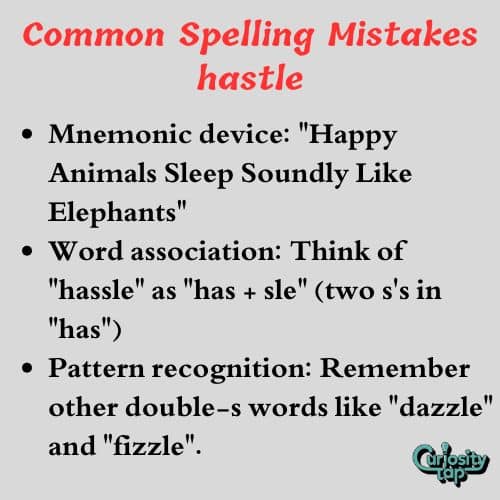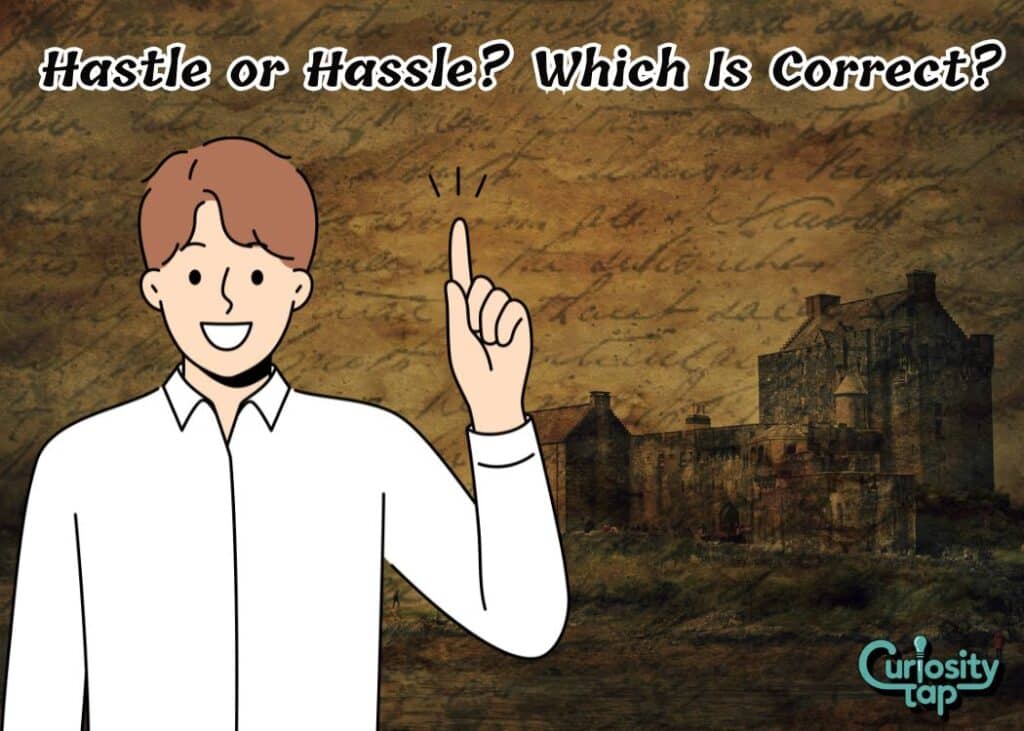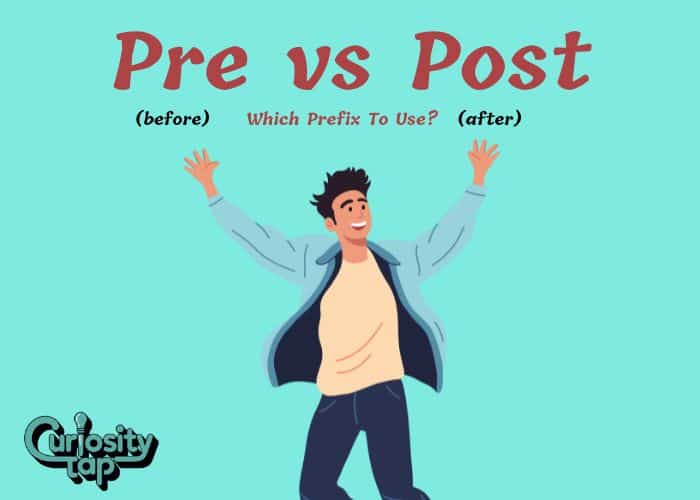Picture this: You’re typing an important email to your boss about a customer complaint, and you need to describe the situation as a real “hassle.” But wait is it hassle or hastle? Your fingers freeze over the keyboard as doubt creeps in. Sound familiar?
This spelling confusion affects millions of English speakers daily, from students writing essays to professionals crafting business communications. The frustration of second-guessing yourself over seemingly simple words can turn a quick message into a time-consuming ordeal.
The truth is, only one spelling is correct, and understanding why will not only boost your confidence but also help you avoid embarrassing mistakes in your writing. Let’s settle this grammar debate once and for all.
The Correct Answer: It’s “Hassle” (Not “Hastle”)
Let’s cut straight to the chase: “Hassle” is the only correct spelling. The word “hastle” is a common misspelling that appears frequently in informal writing, but it’s grammatically incorrect and should be avoided in all contexts.
This spelling mistake is so widespread that even some spell-checkers occasionally miss it, making it even more important to understand the correct form. Whether you’re writing a casual text message or a formal business proposal, always use “hassle” with two s’s.
Understanding the Meaning of “Hassle”
The word “hassle” serves as both a noun and a verb, making it a versatile term in everyday English. Understanding its dual nature helps explain why this word appears so frequently in our daily conversations and written communications.
As a Noun: Describing Problems and Annoyances
When used as a noun, “hassle” refers to:
- Inconvenience or trouble that causes frustration
- Persistent problems that require unwanted effort to resolve
- Annoying situations that disrupt normal activities
- Bureaucratic complications that create unnecessary delays
Example sentences:
- “The airport security check was such a hassle this morning.”
- “Sarah avoided the downtown route to skip the traffic hassle.”
- “Moving to a new apartment always involves some hassle with utilities.”
As a Verb: The Act of Bothering or Pressuring
As a verb, “hassle” means:
- To pester or bother someone persistently
- To pressure someone into doing something they don’t want to do
- To create difficulties for another person intentionally
- To engage in arguments or confrontational behavior
Example sentences:
- “The salesperson continued to hassle customers at the mall.”
- “Don’t hassle me about the deadline I’m already working on it.”
- “The protesters began to hassle the politician during his speech.”
Why “Hastle” is Wrong: The Spelling Pattern Explained
The incorrect spelling “hastle” violates fundamental English spelling patterns. Understanding these patterns helps explain why the mistake feels so natural yet remains grammatically wrong.
The Double-S Rule in English
English words ending in -le typically follow specific consonant patterns:
- Words with double consonants before -le: hassle, dazzle, fizzle, puzzle
- Words with single consonants before -le: castle, hustle, rustle, whistle
The word “hassle” belongs to the double consonant category, which means removing one “s” creates an incorrect spelling that breaks established English patterns.
Common Words That Follow the Same Pattern
Here are other words that follow the double-s before -le pattern:
- Dazzle (not “dazle”)
- Fizzle (not “fizle”)
- Sizzle (not “sizle”)
- Drizzle (not “drizle”)
Notice how removing one consonant from any of these words creates an obviously incorrect spelling. The same principle applies to “hassle” the double-s is essential for correct spelling.
Real-World Examples of “Hassle” in Different Contexts
Understanding how “hassle” appears in various real-world situations helps reinforce proper usage and spelling. Here are practical examples across different contexts:
Business and Professional Settings
- Customer service: “We apologize for the hassle with your recent order.”
- Marketing: “Our new app eliminates the hassle of manual data entry.”
- Workplace communication: “Let’s streamline this process to reduce hassle for everyone.”
Daily Life Situations
- Travel: “The flight delay was a real hassle, but we made it eventually.”
- Technology: “Setting up the new software was more of a hassle than expected.”
- Home life: “Cooking dinner became a hassle after the stove broke.”
Academic and Educational Contexts
- Student writing: “The research process was initially a hassle, but it became manageable.”
- Administrative tasks: “Registration day always involves some hassle with scheduling.”
- Group projects: “Coordinating everyone’s schedule was the biggest hassle.”
Etymology and Origins: How “Hassle” Developed
The word “hassle” has fascinating linguistic roots that help explain its current spelling. Understanding this etymology provides insight into why the double-s spelling is correct.
Historical Development
The word “hassle” likely originated from the dialectal word “hatchel”, which referred to a tool used for combing flax fibers. Over time, this evolved into describing the act of persistent bothering or creating difficulties.
Regional Influences
Different English-speaking regions contributed to the word’s development:
- American English: Popularized the spelling with double-s
- British English: Adopted the American spelling pattern
- Regional dialects: Influenced the pronunciation that supports the double-s spelling

Common Spelling Mistakes and How to Avoid Them
The “hastle” misspelling represents just one example of common English spelling challenges. Here are strategies to avoid this and similar mistakes:
Memory Techniques for Correct Spelling
- Mnemonic device: “Happy Animals Sleep Soundly Like Elephants”
- Word association: Think of “hassle” as “has + sle” (two s’s in “has”)
- Pattern recognition: Remember other double-s words like “dazzle” and “fizzle“
Technology Tools and Limitations
While spell-checkers can help, they’re not foolproof:
- Autocorrect sometimes suggests incorrect alternatives
- Context matters some programs may not catch “hastle” in certain sentences
- Manual proofreading remains essential for professional writing
Practical Writing Tips and Expert Advice
As a grammar expert, I recommend these proven strategies for mastering correct spelling and avoiding common mistakes:
What to Do:
- Double-check any word you’re unsure about in a reliable dictionary
- Practice writing the word correctly in multiple sentences
- Create personal reminders for frequently misspelled words
- Read extensively to reinforce correct spelling patterns through exposure
What to Avoid:
- Relying solely on autocorrect for important documents
- Guessing at spelling when you’re uncertain
- Ignoring spelling mistakes in informal writing (bad habits transfer)
- Rushing through proofreading, especially for professional communications
Bonus Tip: The “Hassle-Free” Marketing Revolution
Here’s an insider insight from the marketing world: The phrase “hassle-free” has become one of the most powerful terms in modern advertising. Companies across industries use this exact spelling to promise convenience and simplicity.
Major brands like Amazon, Apple, and Uber have built entire marketing campaigns around eliminating “hassles” from customer experiences.
This widespread commercial usage means that spelling “hassle” correctly is more important than ever it’s not just about grammar, it’s about understanding contemporary business language.
The next time you see “hassle-free guarantee” or “no-hassle returns,” you’ll recognize the correct spelling pattern and understand why precision matters in professional communication.
Comparison Table: Hassle vs. Common Alternatives
| Word | Correct Spelling | Common Misspelling | Meaning | Example |
| Hassle | ✅ Hassle | ❌ Hastle | Trouble/bother | “The move was a real hassle.” |
| Hustle | ✅ Hustle | ❌ Hussle | Quick movement/work hard | “Time to hustle to the meeting.” |
| Tassel | ✅ Tassel | ❌ Tasel | Decorative tuft | “The graduation cap tassel moved.” |
| Castle | ✅ Castle | ❌ Castel | Fortified building | “The medieval castle stood tall.” |
Frequently Asked Questions
Is “hastle” ever acceptable in informal writing?
No, “hastle” is never correct in any context, whether formal or informal. While informal writing allows for relaxed grammar rules, spelling accuracy remains important for clear communication. Using the correct spelling of “hassle” demonstrates attention to detail and respect for your readers.
How can I remember the correct spelling of “hassle”?
The easiest way is to remember that “hassle” rhymes with “dazzle” and follows the same double-consonant pattern. Both words have double letters (ss and zz) before the -le ending. You can also think of the phrase “has + sle” to remember the double-s spelling.
Are there any exceptions to the double-s rule in English?
While most words ending in -le follow consistent patterns, English does have exceptions. However, “hassle” is not one of them. Words like “castle” and “hustle” use single consonants, but “hassle” definitively requires the double-s spelling. When in doubt, consult a reliable dictionary.
Why do spell-checkers sometimes miss “hastle”?
Some spell-checkers may not flag “hastle” because it resembles other legitimate words or appears in their databases as a regional variant. However, standard dictionaries confirm that only “hassle” is correct. This is why manual proofreading and understanding spelling rules remain essential for professional writing.
Conclusion
Mastering the correct spelling of “hassle” isn’t just about avoiding embarrassing typos it’s about building confidence in your communication skills and ensuring your message hits the mark every time.
Remember, there’s no shortcut or alternative: it’s always “hassle” with two s’s, whether you’re describing a frustrating situation or someone bothering you persistently.
The next time you encounter this spelling challenge, you’ll tackle it with the knowledge that proper grammar and attention to detail set you apart as a thoughtful, professional communicator.
So go ahead write with confidence, spell with precision, and never let a simple word become a hassle in your writing journey again.
Read more knowledgeable blogs on Curiosity Tap
Is this article helpful?

Jackson Pearson is a passionate educator and language enthusiast behind the blog Jackson Pearson. With years of experience in teaching and writing, he specializes in simplifying complex grammar rules, breaking down tricky vocabulary, and crafting learning guides that are both engaging and practical. His mission is to help readers boost their English skills whether they’re beginners or brushing up for fluency. Through every article, Jackson brings clarity, structure, and a spark of curiosity to the world of English learning.



